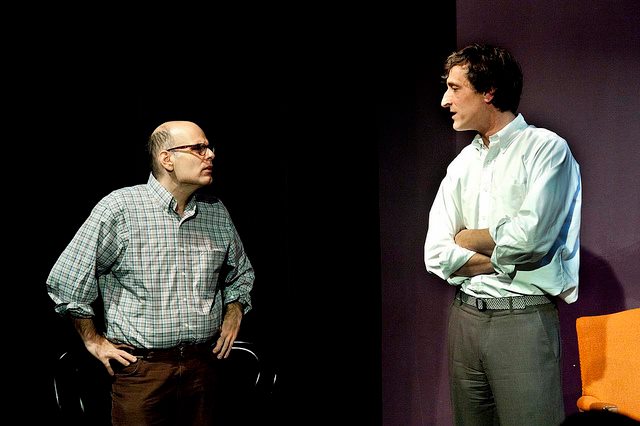Long Form Improv Scene Hack: Use Emotions to Drive the Dialogue

Do you ever find yourself doing an improv scene and you're not quite sure what should happen next? If so, one easy hack that I've found works well is to heighten your character's emotions.
Emotions can make dialogue flow easily and sound natural, especially when they are coming from a real place. And sometimes all it takes to have an amazing, captivating scene is for one person in the scene to have a strong emotional response to something.
For example, if a player in a scene says, “I am going to Starbucks to get a Frappuccino,” you might respond sadly, saying, “You’re breaking up me with me! You’re not really coming back!”
Or you might respond frightened: “I have to go with you! It will look suspicious if it’s just you.”
Or you might say flirty: “Just like when we were dating. I’ll meet you in the bed when you get back.”
All of these responses will give the scene life and somewhere to go because they infuse the moment with emotion.
Starting dialogue without an emotion can put you in your head because you are relying on yourself to be clever. If you are clever, maybe you can pull this off. If not, like me, you probably need all the help you can get.
When you let the emotions drive the dialogue, prepare to be surprised with what happens. That's because when we rely on our wits, we are limited in our responses. But when add emotions into our scenes, we open ourselves up to the possibility of surprise, which is an essential ingredient in comedy.
I’ve found that adding emotions to scenes frees players up, and if they commit to the emotion, they won’t even be thinking about the dialogue. They will be less self-conscious and the words will flow easily and naturally.
Adding emotions into a scene can be as simple as having a strong emotional response (happy, sad, afraid, angry) to something your scene partner just said. By focusing on the emotion, your left brain will be kept busy while your right brain can just go crazy.
For example, let’s say you are in a scene and Player A reveals a secret.
Player A: “I’ve been cheating on you.”
Player B (gets angry): “I knew it! I knew it! I knew you’ve been cheating on me! That’s it! Our relationship is over!”
All emotions are energy. If we heighten the emotions, it’s easier to come up with dialogue. Think of emotions like clay: The more you heighten them the easier it is to mold them to create something beautiful. So would you rather work with a lot of clay or very little clay?

